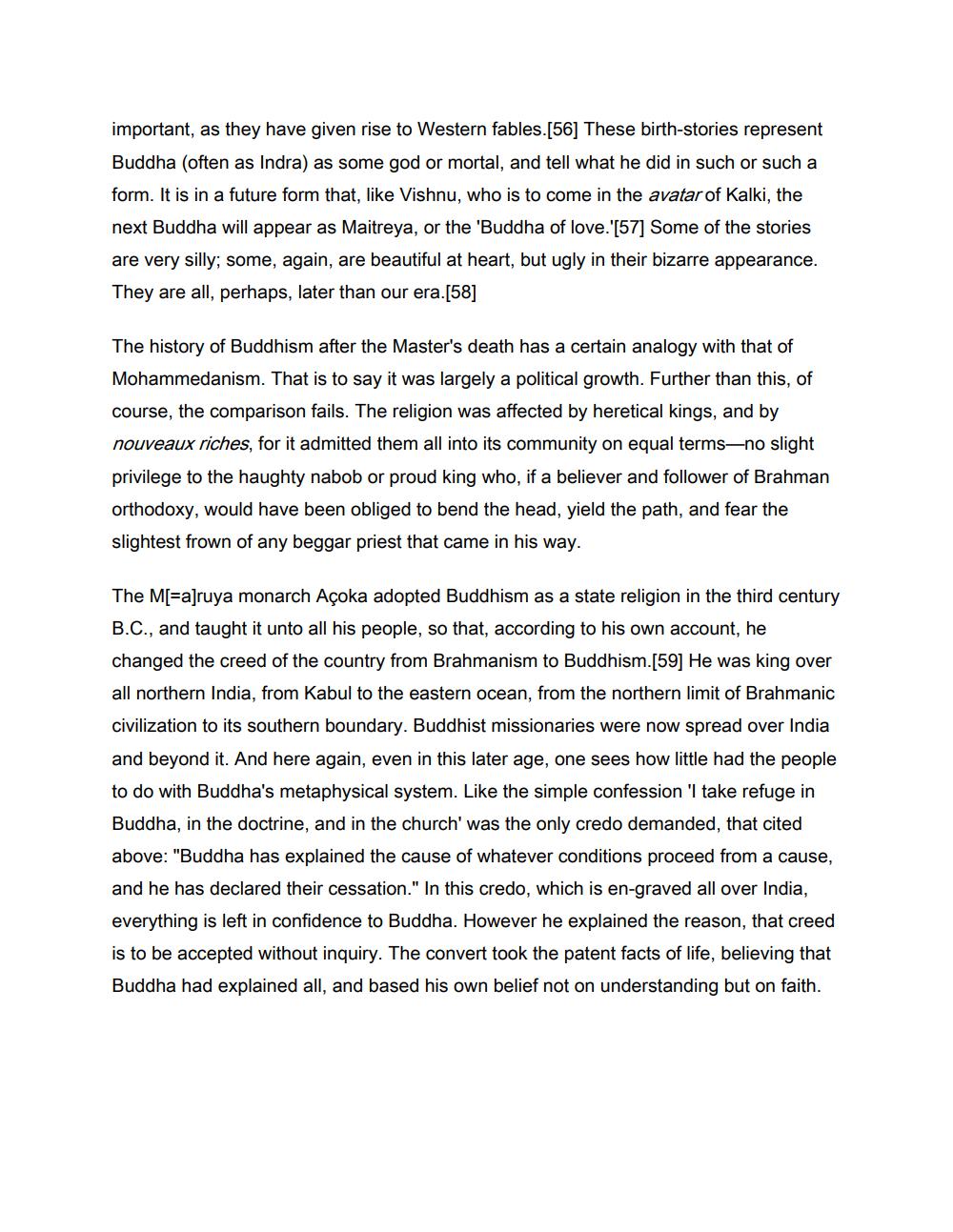________________
important, as they have given rise to Western fables.[56] These birth-stories represent Buddha (often as Indra) as some god or mortal, and tell what he did in such or such a form. It is in a future form that, like Vishnu, who is to come in the avatar of Kalki, the next Buddha will appear as Maitreya, or the 'Buddha of love.'[57] Some of the stories are very silly; some, again, are beautiful at heart, but ugly in their bizarre appearance. They are all, perhaps, later than our era.[58]
The history of Buddhism after the Master's death has a certain analogy with that of Mohammedanism. That is to say it was largely a political growth. Further than this, of course, the comparison fails. The religion was affected by heretical kings, and by nouveaux riches, for it admitted them all into its community on equal terms—no slight privilege to the haughty nabob or proud king who, if a believer and follower of Brahman orthodoxy, would have been obliged to bend the head, yield the path, and fear the slightest frown of any beggar priest that came in his way.
The M[=a]ruya monarch Açoka adopted Buddhism as a state religion in the third century B.C., and taught it unto all his people, so that, according to his own account, he changed the creed of the country from Brahmanism to Buddhism.[59] He was king over all northern India, from Kabul to the eastern ocean, from the northern limit of Brahmanic civilization to its southern boundary. Buddhist missionaries were now spread over India and beyond it. And here again, even in this later age, one sees how little had the people to do with Buddha's metaphysical system. Like the simple confession 'I take refuge in Buddha, in the doctrine, and in the church' was the only credo demanded, that cited above: "Buddha has explained the cause of whatever conditions proceed from a cause, and he has declared their cessation." In this credo, which is en-graved all over India, everything is left in confidence to Buddha. However he explained the reason, that creed is to be accepted without inquiry. The convert took the patent facts of life, believing that Buddha had explained all, and based his own belief not on understanding but on faith.




